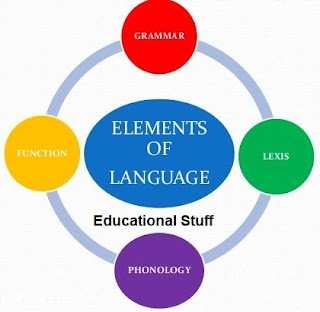 A professional
development workshop
A professional
development workshop
English and Urdu Phonetics
Introduction
This report is of a
professional workshop conducted for the teachers of Government, and other
private schools at one of the remote areas of Gilgit-Baltistan on the topic “English
and Urdu Phonetics”. The process, achievements, challenges, and recommendations
have been discussed in the lateral sections of this report. The workshop
started at 12:30pm sharp and ended at 3:30pm on October 28, 20. Total 51-course
participants, 17 males, and 34 females attended the workshop.
|
Schools
|
Government
|
Private
schools
|
NEF
|
Total
|
|
Female
|
12
|
19
|
3
|
34
|
|
Male
|
9
|
08
|
0
|
17
|
|
Total
|
21
|
27
|
3
|
51
|
Objectives of the workshop
The objectives of the workshop were:
·
Providing teachers
with an opportunity to be familiarized with a number of alphabets and
their types and phonemes of English and Urdu.
·
Engaging teachers to listen, practice, and produce
sounds of English and Urdu phonemes
Process
The session was started with the recitation of some
verses from the Holy Quran. Workshop Facilitator (WF) said welcome to the
participants and shared the objectives of the workshop. An experienced and well-qualified teacher having a master's degree in English (linguistics) was engaged
in conducting the session. Workshop Participants (WPs) were asked to share
their understanding of English phonetics. Concluding and summarizing the
responses of WPs, the CF explained the English alphabets, their types, and
sounds of different phonemes. The facilitator made the WPs practice sounds of
different phonemes and provided chances to WPs produce correct sounds of
phonemes.
Then the facilitator wrote some words on the whiteboard and explained their correct pronunciations which were mispronounced by the teachers
earlier. Another activity was group work where WPs were assigned to find the
correct pronunciation of different words consulting dictionaries. After that, each group presented the pronunciation of certain words which they found from
Oxford Advanced Learner Dictionaries. WF made sure the correct pronunciation of
under-discussed words using a laptop in which a talking dictionary was installed.
After lunch, another session was conducted about “Urdu alphabets and
sounds”. A teacher who was an expert in the sounds of Urdu alphabets was engaged in
conducting the workshop. During this session, WPs were asked to tell the exact
number of Urdu alphabets. WPs responded according to their understanding. Then
the WF explained the total number of Urdu alphabets and
their sounds using a hand-made chart. There was a hot debate among the WPs
about alphabets and their sounds. Some participants did not
want to accept the newly and correctly learned sounds of Urdu alphabets. The WF
made the WPs practice the correct sounds of Urdu alphabets through sharing examples.
In the end, one of the WPS from different schools shared their
reflections. They said such type of sessions needs to be conducted frequently.
They thanked the coordinator of the workshop and WFs for providing a conducive
and lively environment for the professional learning experience. All the WPs
decided that they will be applying the correct pronunciation of English and
Urdu words in their classrooms consulting a dictionary to communicate students
with actual pronunciation of vocabulary.
Achievements
- 51 teachers got an
opportunity to be oriented with alphabets, their types and sounds of
English and Urdu phonemes.
- The services of local
expert teachers from the participants were obtained as a workshop
facilitators.
·
Workshop participants learned the actual pronunciation of some words
which were mispronounced by them earlier in English and Urdu as well.
·
WFs spared more than half an hour extra time than the planned time due
to interesting and meaningful debate among the WPs.
Challenges
- Strong inculcated
wrong images of the sounds particularly of Urdu alphabets among the WPs
- Shortfall of
electricity due to which multimedia could not be used for showing words
for pronunciation
·
Logistic arrangements particularly transportation of the CPs from
different locations to workshop venue remained a challenge
Recommendations
- Follow up needs to be done after such types of workshops and refresher workshops need to be conducted
- In other areas workshops may be conducted for teachers using local human resource
- Funds need to be increased to provide transport facilities to CPs


0 Comments
Post a Comment